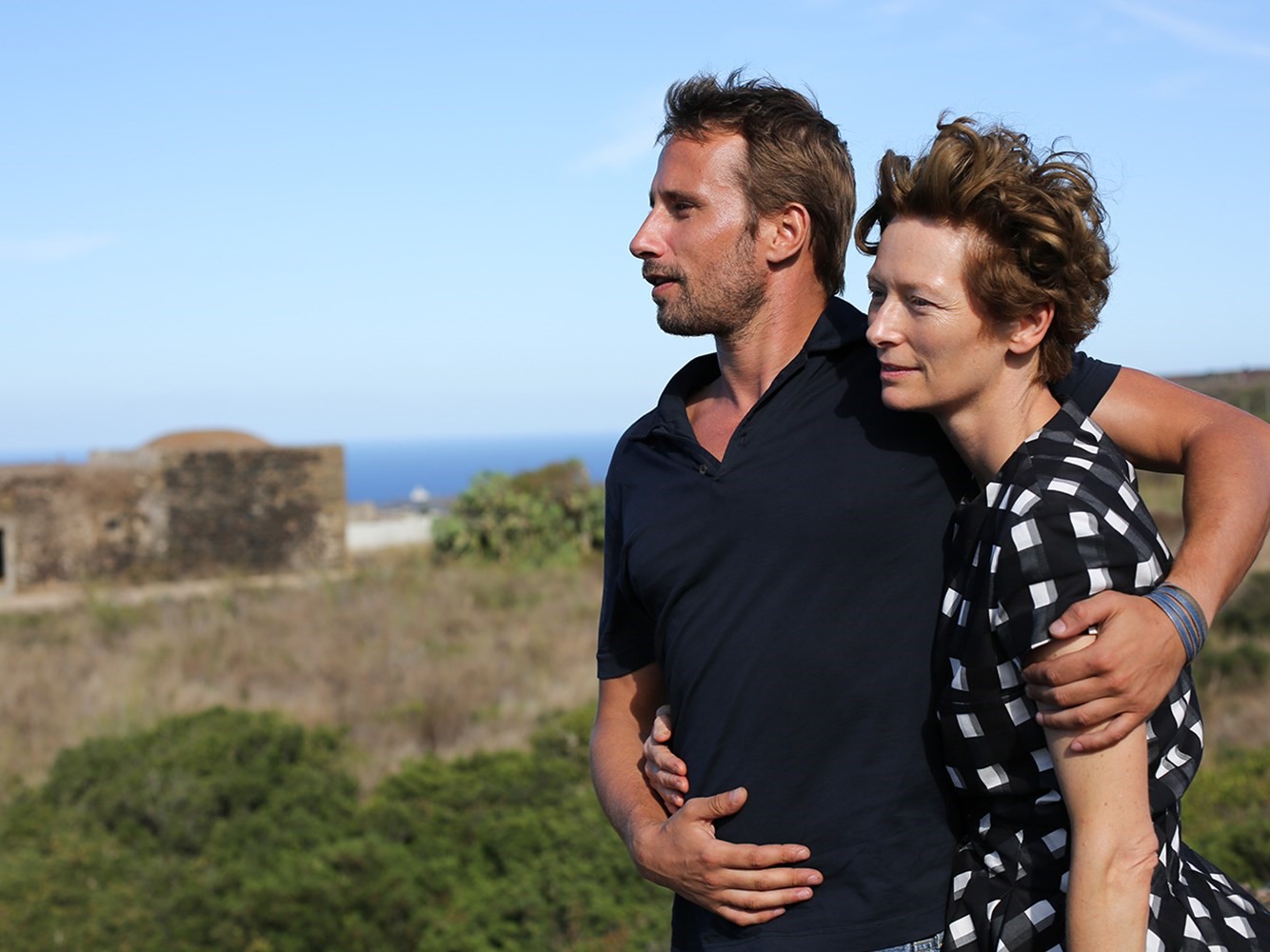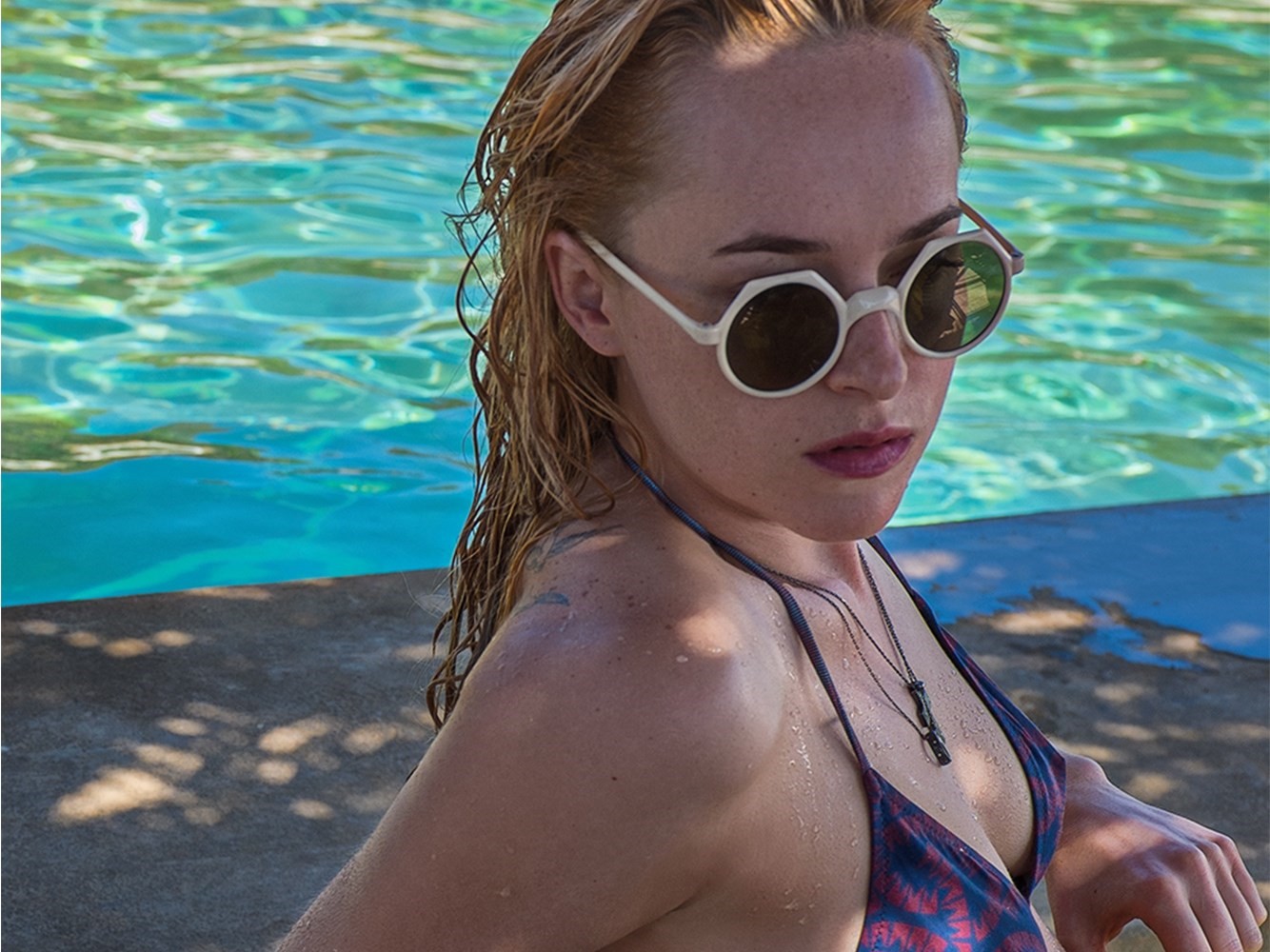The forces of passion ripped apart the stately decorum of a prominent Milan family in the sumptuously shot drama I Am Love, in which Tilda Swinton played the wife of a textile magnate embroiled in a steamy affair with her son’s friend. Six years on, its brilliant Italian director Luca Guadignino has again joined forces with the British star for another film of big personalities with perilous erotic entanglements. A Bigger Splash premiered in competition at the Venice Film Festival earlier this week. A remake of sultry 60s French thriller La Piscine, which was lit by the star power of Alain Delon, Romy Schneider and Jane Birkin, it’s a fabulously wry and cynical take on the havoc that can be wreaked when celebrity egomaniacs lose control. The updated title is borrowed from David Hockney’s iconic pop painting, in which the surface of a swimming pool has been violently disturbed by an unseen figure. Take that as a hint that no good is likely to come of the propensity of the film’s characters for impulsive, treacherous extremes.
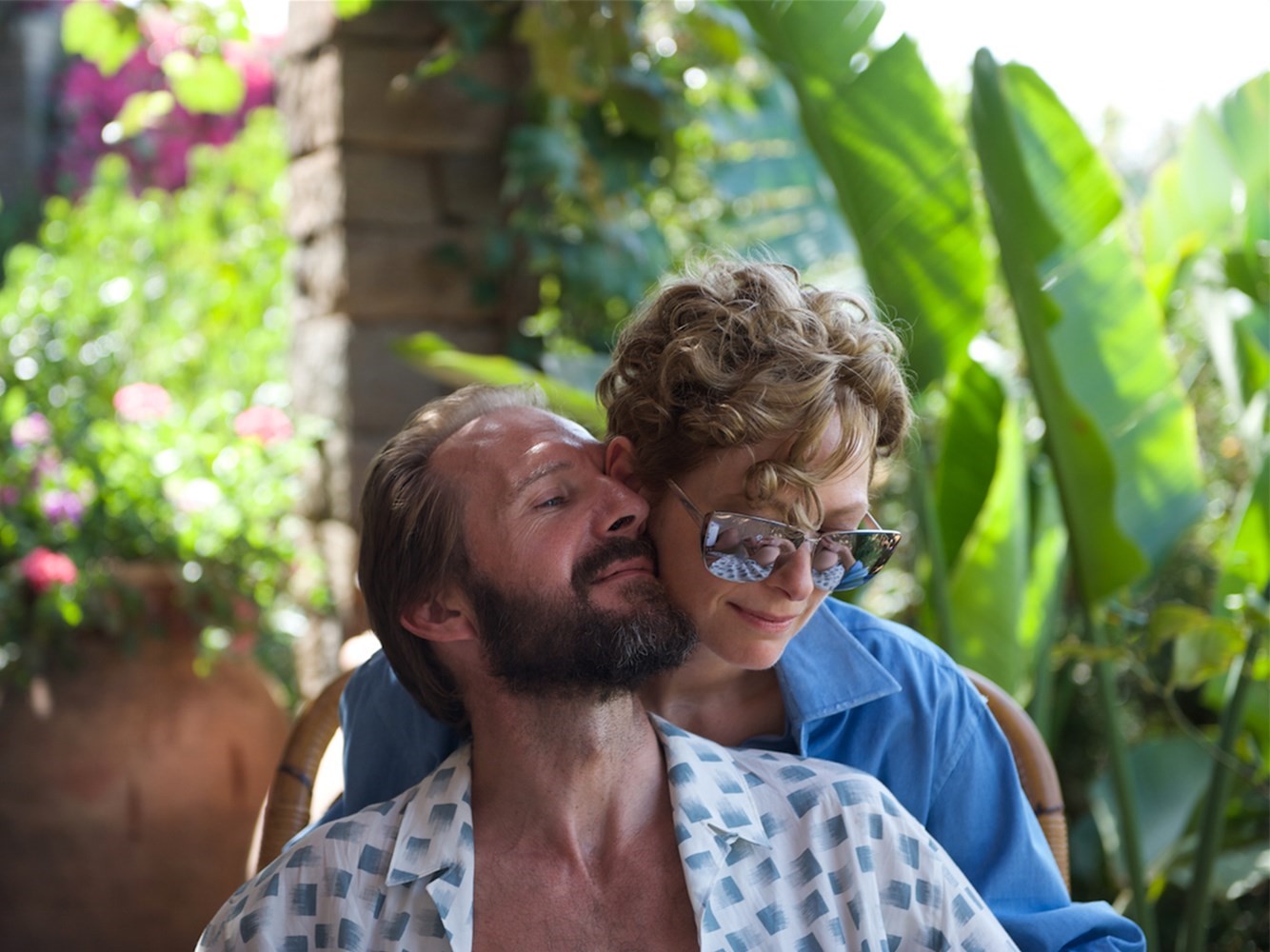
Tilda Swinton is on regal form as rock star Marianne Lane. The level of public adulation she’s accustomed to is vividly played out in flashback scenes, where she’s rousingly cheered by a vast stadium crowd, arms upraised in a sequin-sprayed Dior jumpsuit that could have been plucked from David Bowie’s wardrobe, circa his Ziggy Stardust era. A throat operation has sent her into secluded recuperation on Pantelleria, a sun-scorched and picturesque volcanic island off Sicily, with her documentary-maker boyfriend Paul (Belgian actor Matthias Schoenaerts). Their idyllic love nest is soon crashed by brash, bearded motor-mouth Harry (Ralph Fiennes), a music producer who Marianne was involved with in her hedonistic, drug-fuelled younger days. His delightfully bratty, coquettish daughter Penelope (Dakota Johnson), who claims to be 22 and whose existence he’s only recently been made aware of, is also in tow. Despite the more introspective Paul’s obvious resentment of this intrusion, Marianne invites them to stay. What follows is rising jealousy and will-they-or-won’t-they tension, as the possibility of infidelity in various permutations heats up.
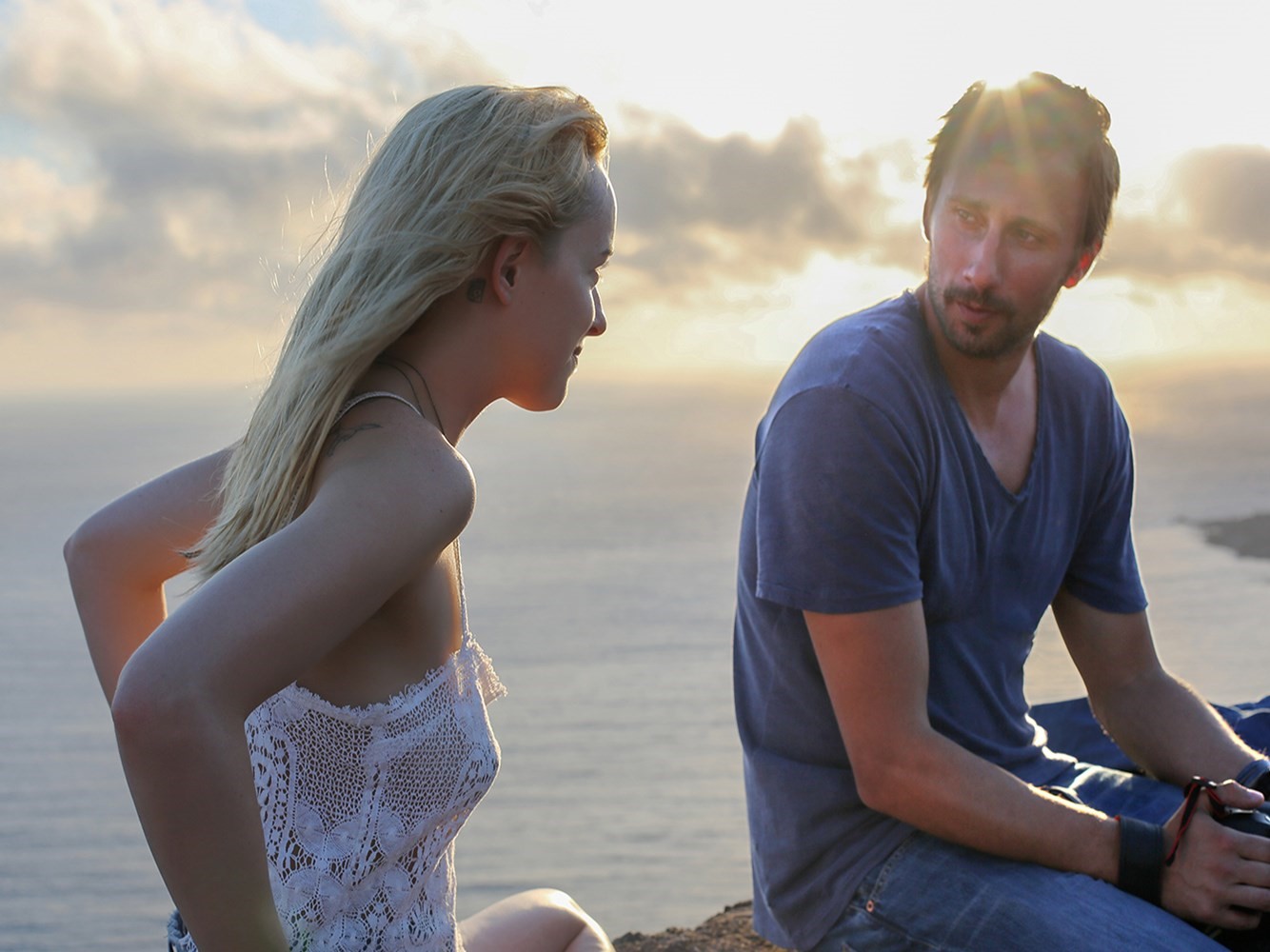
Though Marianne has lost her voice, she still holds court with elegantly theatrical gesturing and selective hoarse whispering, wafting around in alluringly nonchalant outfits (again, courtesy of Dior’s Raf Simons) and using her condition to her advantage, choosing exactly when and how she engages with her fellow holiday-makers. Swinton perfected a rock-world vampire in Jim Jarmusch’s stylish Only Lovers Left Alive (which shares the film’s director of photography Yorick Le Saux), though as Marianne her insatiable urges are more human, and her life-sucking self-regard is a shield against vulnerability. While she confidently owns this role, it’s Ralph Fiennes that is truly surprising as Harry, as he taps a talent for manic comedy that breaks far away from his rep as a serious, po-faced thesp. Barreling onto the scene with his unbuttoned shirts and well-worn, name-dropping anecdotes about his days as an industry bigshot, his gratingly unrelenting joie de vivre belies a desperation to still be the life and soul of any party. His living room dance moves to the Stones track “Emotional Rescue” are a high-point of the film’s robust humour.
"Barreling onto the scene with his unbuttoned shirts and well-worn, name-dropping anecdotes about his days as an industry bigshot, Harry's gratingly unrelenting joie de vivre belies a desperation to still be the life and soul of every party."
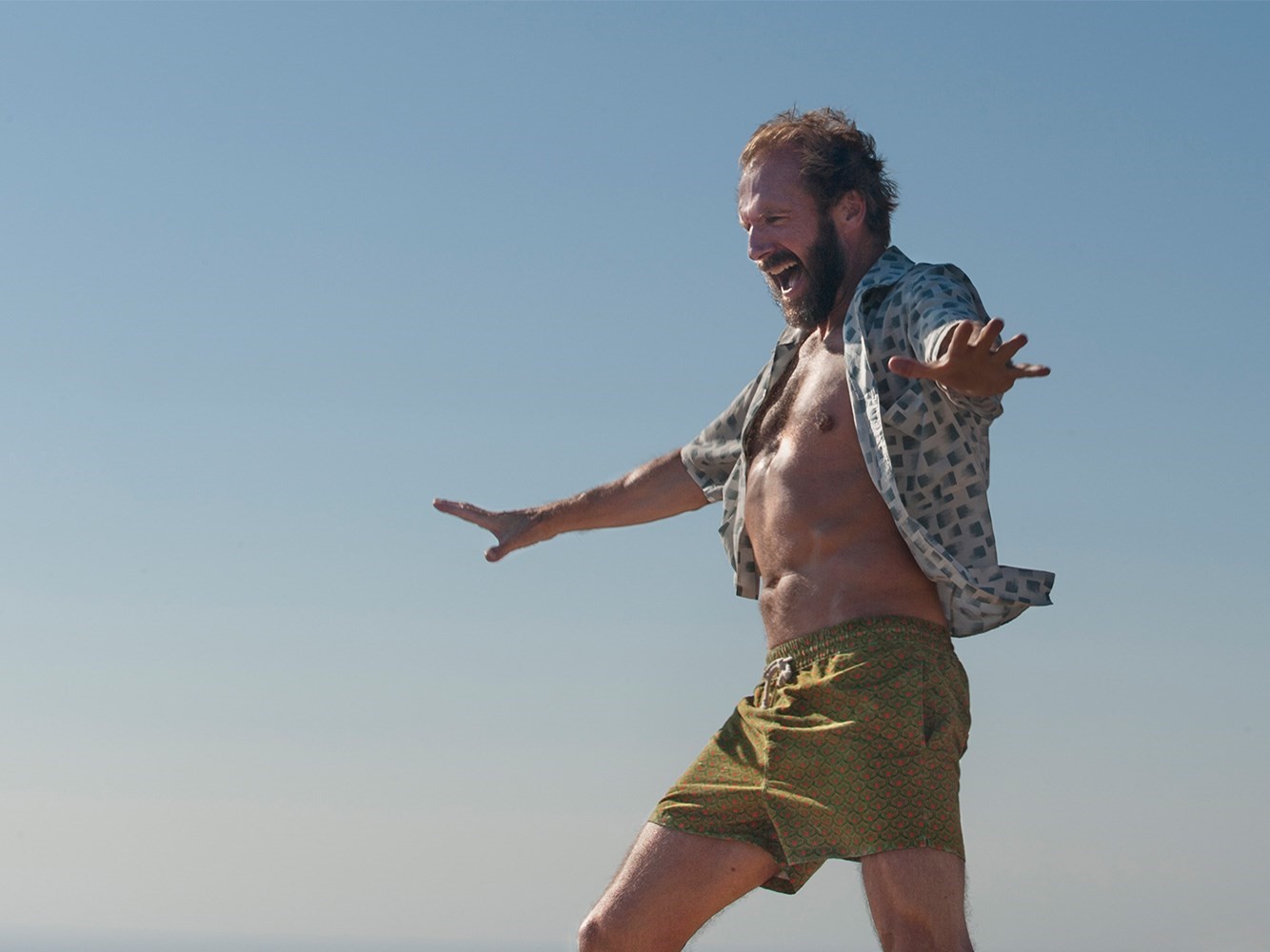
Harry’s supreme insensitivity sees him filling the fridge with bottles of hard liquor, despite Paul being a recovering alcoholic, and insisting that Marianne replies to his endless questions and teasing despite her health-wary protestations. The dynamic is complicated with the revelation that Harry used to be good friends with Paul and introduced him to Marianne, and that pushing their peaceful union to combust may be all part of his agenda. While Marianne and Paul may act as a stabilising influence on each other, the past’s intrusion shows up just how fragile this is, and that it may not be built to last. Especially when in this volatile mix, there’s also bored Penelope, who seems intent on channeling conniving seduction worthy of a Poison Ivy Drew Barrymore to make her holiday somehow memorable, leveraging Paul’s wounded ego to relieve her own sense of being a neglected outsider to this group.
"With its sharp-edged exchanges, laden with subtexts, green-eyed gazes and twisted, attention-seeking ploys, A Bigger Splash is an entertaining hotbed of psychological dysfunction."
With its sharp-edged exchanges, laden with subtexts, green-eyed gazes and twisted, attention-seeking ploys, A Bigger Splash is an entertaining hotbed of psychological dysfunction, ramped up in scenes such as a wasted karaoke session in a bar during the local St Gaetano celebrations, when not everyone can have the spotlight. As clothes come off and impulses lurch toward more sinister ends, the supreme self-absorption of these privileged luxury vacationers is brought into focus by the Tunisian immigrants coming to the island, some of whom have been drowning in their efforts to reach the shore and who are seen by the holidaymakers only as threats – or potential scapegoats. Just how much can a person get away with, when they’re in with Marianne Lane?
